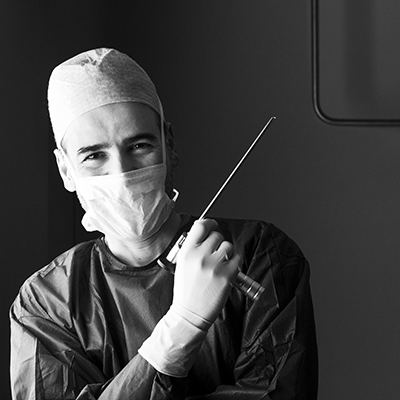Endoscopic Brow/Forehead Lift
- The uncovered parts of the body and especially the face carry the heavy toll of sun damage and show the photoaging stigmata much faster.
- Facial skin becomes dry, looses the elastic qualities which along with the effect of gravity results in sagging of the brow, creases across the forehead and frown lines.
- As a matter of fact, the forehead/brow complex shows the first signs of aging at a very early stage, sometimes even by the age of 25.
- Very frequently a tired look is not only the result of loose eyelid skin as many believe, but also contributed to the laxity and gravitational changes of the eyebrow/forehead complex (upper third of the face).
- In these situations the eyes look tired, angry or sad.
- Very often surgeons in Greece tend to overlook the effects of brow descend on the ‘’tired’’ look of the aging face.
- Eyelid surgery alone will certainly not address these issues and neuromodulators like Botox may even worsen the problem.
- Face ages as a whole. Bearing that in mind it’s easy to understand that treating only the mid or the lower face will certainly have no effect on the forehead or the brows.
- Dr Agiannidis has an extensive training on the endoscopic forehead/brow lift which is performed through 3 small incisions behind the hairline with the help of an endoscope connected to a camera.
- With the forehead/brow lift we can achieve:
- Tighten the brow and forehead skin and correct droopy eyebrows creating a more youthful appearance.
- Recreate an attractive arched brow.
- Smoothen or eliminate forehead wrinkles.
- Dr Agiannidis can perform an internal browpexy through an upper blepharoplasty incision without any additional scars.
- Forehead/Brow lift can be successfully combined with:
- Facelift
- Eyelid surgery
- Chemical peels
- Facial fat grafting
- Dr Agiannidis is also experienced in male endoscopic brow lift surgery.
Endoscopic Septoplasty
- Endoscopic septoplasty is a very precise and minimally invasive procedure, which is carried out with the help of a very thin endoscope, connected to a camera.
- This technique requires specialized training and accurate knowledge of the endoscopic anatomy of the nasal cavity.
- The advantages are obvious: minimal down time compared to standard septoplasty and a very short healing time. With the scope we can achieve optimal visual conditions in order to treat precisely areas otherwise hard to visualize.
- In that way the operation becomes very targeted.
- Its very useful in secondary or revision cases and especially for deformities concerning the posterior septum which is rather hard to inspect with the human eye.




 Ελληνικα
Ελληνικα English
English